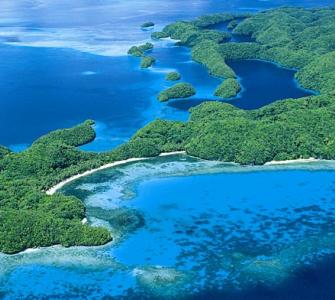CSF is helping Yap State in the Federated States of Micronesia design a framework for sustainable economic development. Key stakeholders will explore scenarios for future development, learn how to measure environmental, social, cultural and economic impacts of different types of programs, and evaluate the potential of proposed projects to achieve sustainable development. This effort is one of several analysis projects being conducted in Micronesia following CSF's Economic Tools for Conservation in Micronesia course held in March of 2012.
Yap, one of the most traditional states in the region with largely intact marine and coastal environments, is exploring how best to develop priority economic sectors, such as tourism, fisheries, and agriculture, without compromising the region’s ecosystems and future natural and economic health. In order to make the best decisions for their island, state leaders and local stakeholders need to understand how to evaluate local economic benefits (such as jobs and tax revenues), as well as potential costs (such as pollution, loss of natural resources and environmental services, and erosion of culture).
CSF is working with the Yap State Chamber of Commerce and other stakeholders to create scenarios of possible development pathways for Yap and identify a preferred plan of future development. Participants will assess key economic, social and environmental issues and trends likely to affect Yap in the short to medium future, and identify threats to achieving the preferred development trajectory. CSF will then hold a workshop to discuss and refine scenarios, as well as provide training to improve local capacity in evaluating economic impacts of projects.
In Yap, as in many other small island states, the scarcity of economic opportunities can lead to a fear of rejecting any prospect, regardless of its potential costs. This work by CSF will help stakeholders objectively balance the need for development with other social, cultural, and environmental goals.

